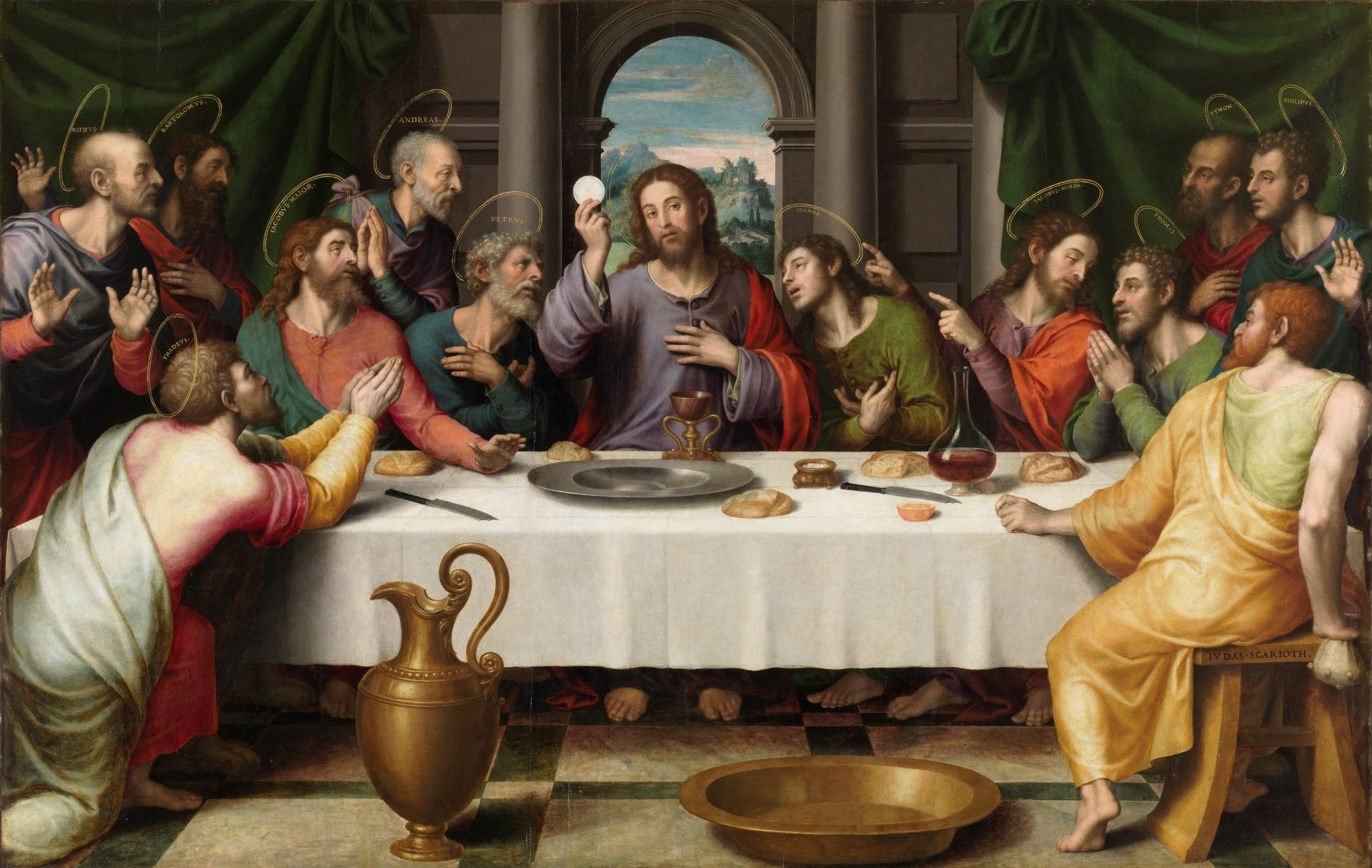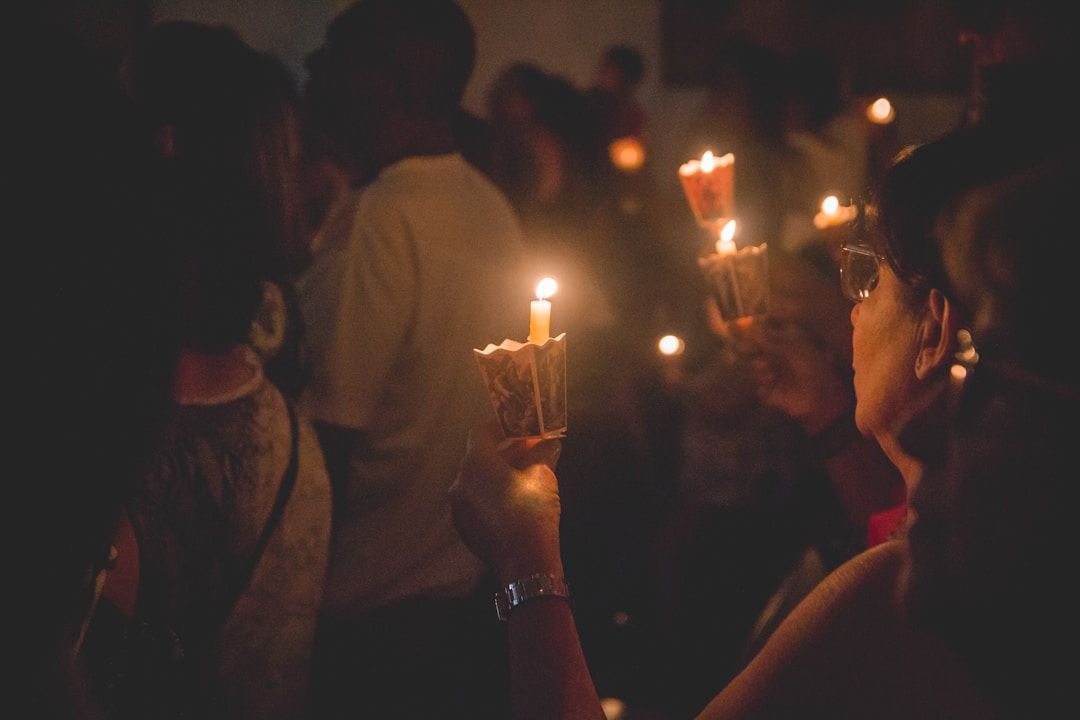
Octave of Easter
Celebrating the Feast of Victory
Easter Sunday, the feast of Christ's victory over death, is the highest and holiest feast of the entire Christian year. It's so important that its celebration cannot be limited to one day.
The Easter Triduum (meaning "three days" and also called the Paschal Triduum) anticipates and includes Easter Sunday. It begins on the evening of Holy Thursday with the Mass of the Lord's Supper. It continues with the Celebration of the Lord's Passion on Good Friday, reaches its climax with the Easter Vigil Mass after sunset on Holy Saturday, and concludes with the liturgy of Easter Sunday itself. The Triduum begins with rejoicing in the Lord's institution of the Eucharist, descends into mourning and fasting as we commemorate his Passion, Death, and burial, and bursts into joyous exultation with the celebration of his Resurrection.
The Easter Triduum (meaning "three days" and also called the Paschal Triduum) anticipates and includes Easter Sunday. It begins on the evening of Holy Thursday with the Mass of the Lord's Supper. It continues with the Celebration of the Lord's Passion on Good Friday, reaches its climax with the Easter Vigil Mass after sunset on Holy Saturday, and concludes with the liturgy of Easter Sunday itself. The Triduum begins with rejoicing in the Lord's institution of the Eucharist, descends into mourning and fasting as we commemorate his Passion, Death, and burial, and bursts into joyous exultation with the celebration of his Resurrection.

The Easter Vigil Mass is when the party really begins. It is the climax of the entire liturgical year as well as the Rite of Christian Initiation of Adults (RCIA), through which new members are inducted into the Church through the Sacraments of Initiation (Baptism, Confirmation, and the Eucharist). The vigil begins with the blessing of a fire and the preparation and lighting of a new paschal candle. As the entire assembly processes into the church, the people light their own candles from the paschal candle, which symbolize the light of the Risen Christ coming into the world. When everyone arrives in the church, the Easter Proclamation (Exsultet) is chanted. This beautiful, triumphant song exults in Christ's victory with great joy.
After the Exsultet comes an extended, meditative Liturgy of the Word with seven Old Testament readings with their Responsorial Psalms and prayers, the return of the Gloria, one New Testament reading, the return of the Alleluia, another Psalm, and the Gospel reading. This is followed by the Baptismal Liturgy, the Renewal of Baptismal Promises, the Celebration of Reception into the Church, and the Celebration of Confirmation. Finally, the assembly celebrates the Liturgy of the Eucharist, and the newly Baptized and Confirmed members of the Church receive their first Holy Communion. Many parishes have some kind of party afterward, in the dead of night, to celebrate our Lord's Resurrection and welcome the new members.

Of course, the Resurrection is celebrated on Easter Sunday itself, but it doesn't end there! The feast is celebrated as an octave, meaning eight days. Each day is a solemnity, the highest type of feast, and part of the Resurrection narrative from one of the Gospels is read at Mass. Even Friday, which is usually a day of abstinence from eating meat, is instead a solemnity. The octave reaches its climax with Divine Mercy Sunday, which we'll explore next week.
Jesus spent 40 days with his disciples after his Resurrection, at which point he Ascended into heaven. On the fiftieth day, he sent them the Holy Spirit so they could proclaim his Resurrection to the whole world. Consequently, Easter doesn't end with the octave, but continues as a season of 50 days. Easter Time is to the Christian year what Sunday is to the Christian week. We sing the Alleluia repeatedly to praise the Lord for his goodness and mercy.
The Solemnity of the Ascension marks the beginning of the end of Easter Time. The season concludes with Pentecost Sunday. We'll learn more about these feasts as we get closer. For now use these resources to celebrate the feast of victory of our God!
Jesus spent 40 days with his disciples after his Resurrection, at which point he Ascended into heaven. On the fiftieth day, he sent them the Holy Spirit so they could proclaim his Resurrection to the whole world. Consequently, Easter doesn't end with the octave, but continues as a season of 50 days. Easter Time is to the Christian year what Sunday is to the Christian week. We sing the Alleluia repeatedly to praise the Lord for his goodness and mercy.
The Solemnity of the Ascension marks the beginning of the end of Easter Time. The season concludes with Pentecost Sunday. We'll learn more about these feasts as we get closer. For now use these resources to celebrate the feast of victory of our God!
Grant, O Lord, that we may begin with holy fasting this campaign of Christian service, so that, as we take up battle against spiritual evils, we may be armed with weapons of self-restraint.
This collect prayer begins the Mass for Ash Wednesday, the first day of Lent. Jesus is calling us to "take up battle against spiritual evils." We'll explore fasting itself in a few weeks; during the week of Ash Wednesday, we're going to dig into an important set of weapons the Lord gives us to fight evil: sacramentals.
What's a sacramental? Well, if you attend Mass on Ash Wednesday, you're probably going to receive one on your forehead.
This collect prayer begins the Mass for Ash Wednesday, the first day of Lent. Jesus is calling us to "take up battle against spiritual evils." We'll explore fasting itself in a few weeks; during the week of Ash Wednesday, we're going to dig into an important set of weapons the Lord gives us to fight evil: sacramentals.
What's a sacramental? Well, if you attend Mass on Ash Wednesday, you're probably going to receive one on your forehead.

A Ministry of Our Lady of the Lake Catholic Church
480 152nd Avenue, Holland, MI 49424
lanecatholic@oll.org
Privacy Policy and Terms of Use
Copyright © 2026